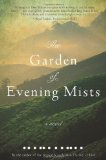Summary | Excerpt | Reviews | Beyond the Book | Readalikes | Genres & Themes | Author Bio

Peering over his spectacles, Abdullah began recounting my life to
the audience, braiding sentences in English into his speech, ignoring
the sign in the courtroom dictating the use of the Malay language
in court.
"Judge Teoh was only the second woman to be appointed to the
Supreme Court," he said. "She has served on this Bench for the past
fourteen years . . ."
Through the high, dusty windows I saw the corner of the cricket
field across the road and, further away, the Selangor Club, its mock-
Tudor facade reminding me of the bungalows in Cameron Highlands.
The clock in the tower above the central portico chimed, its
languid pulse beating through the walls of the courtroom. I turned
my wrist slightly and checked the time: eleven minutes past three;
the clock was, as ever, reliably out, its punctuality stolen by lightning
years ago.
". . . few of us here today are aware that she was a prisoner in a
Japanese internment camp when she was nineteen," said Abdullah.
The advocates murmured among themselves, observing me with
heightened interest. I had never spoken of the three years I had spent
in the camp to anyone. I tried not to think about it as I went about
my days, and mostly I succeeded. But occasionally the memories
still found their way in, through a sound I heard, a word someone
uttered, or a smell I caught in the street.
"When the war ended," the chief justice continued, "Judge Teoh
worked as a research clerk in the War Crimes Tribunal while waiting
for admission to read law at Girton College, Cambridge. After
being called to the bar, she returned to Malaya in 1949 and worked
as a deputy public prosecutor for nearly two years . . ."
In the front row below me sat four elderly British advocates,
their suits and ties almost as old as they. Along with a number of
rubber planters and civil servants, they had chosen to stay on in
Malaya after its independence, thirty years ago. These aged Englishmen
had the forlorn air of pages torn from an old and forgotten
book.
The chief justice cleared his throat and I looked at him. "Judge
Teoh was not due to retire for another two years, so you will no
doubt imagine our surprise when, only two months ago, she told
us she intended to leave the Bench. Her written judgments are
known for their clarity and elegant turns of phrase . . ." His words
flowered, became more laudatory. I was far away in another time,
thinking of Aritomo and his garden in the mountains.
The speech ended. I brought my mind back to the courtroom,
hoping that no one had noticed the potholes in my attention; it
would not do to appear distracted at my own retirement ceremony.
I gave a short, simple address to the audience and then Abdullah
brought the ceremony to a close. I had invited a few well-wishers
from the Bar Council, my colleagues and the senior partners in
the city's larger law firms for a small reception in my chambers. A
reporter asked me a few questions and took photographs. After the
guests left, Azizah went around the room, gathering up the cups and
the paper plates of half-eaten food.
"Take those curry puffs with you," I said, "and that box of
cakes. Don't waste food."
"I know-lah. You always tell me that." She packed the food
away and said, "Is there anything else you need?"
"You can go home. I'll lock up." It was what I usually said to her
at the end of every court term. "And thank you, Azizah. For everything."
She shook the creases out of my black robe, hung it on the coat
stand and turned to look at me. "It wasn't easy working for you all
these years, Puan, but I'm glad I did." Tears gleamed in her eyes.
"The lawyers—you were difficult with them, but they've always
respected you. You listened to them."
"That's the duty of a judge, Azizah. To listen. So many judges
seem to forget that."
Excerpted from The Garden of Evening Mists by Tan Twan Eng. Copyright © 2012 by Tan Twan Eng. Excerpted by permission of Weinstein Books. All rights reserved. No part of this excerpt may be reproduced or reprinted without permission in writing from the publisher.




A book may be compared to your neighbor...
Click Here to find out who said this, as well as discovering other famous literary quotes!
Your guide toexceptional books
BookBrowse seeks out and recommends the best in contemporary fiction and nonfiction—books that not only engage and entertain but also deepen our understanding of ourselves and the world around us.